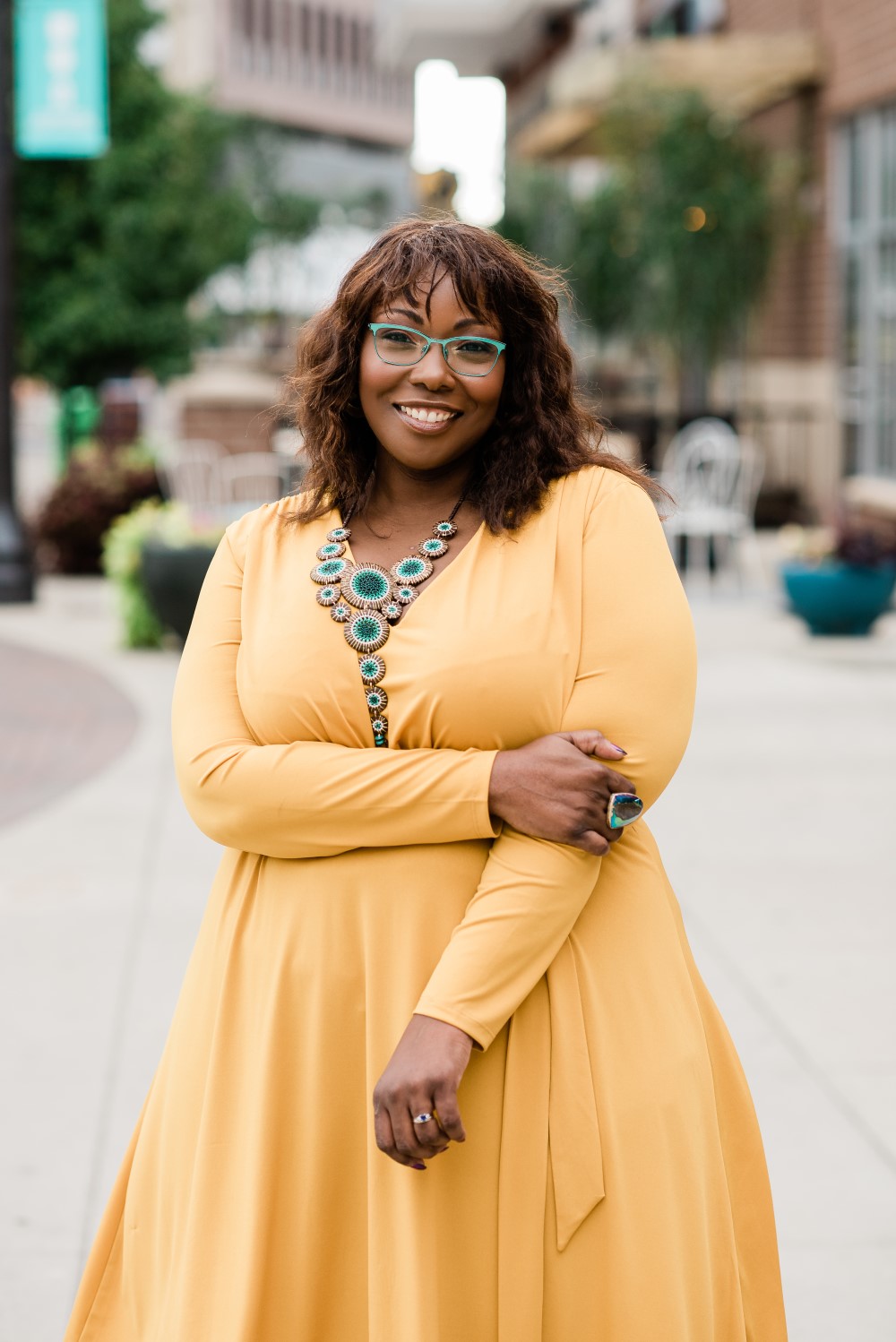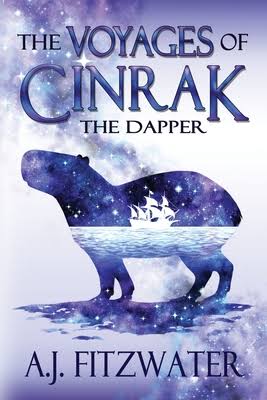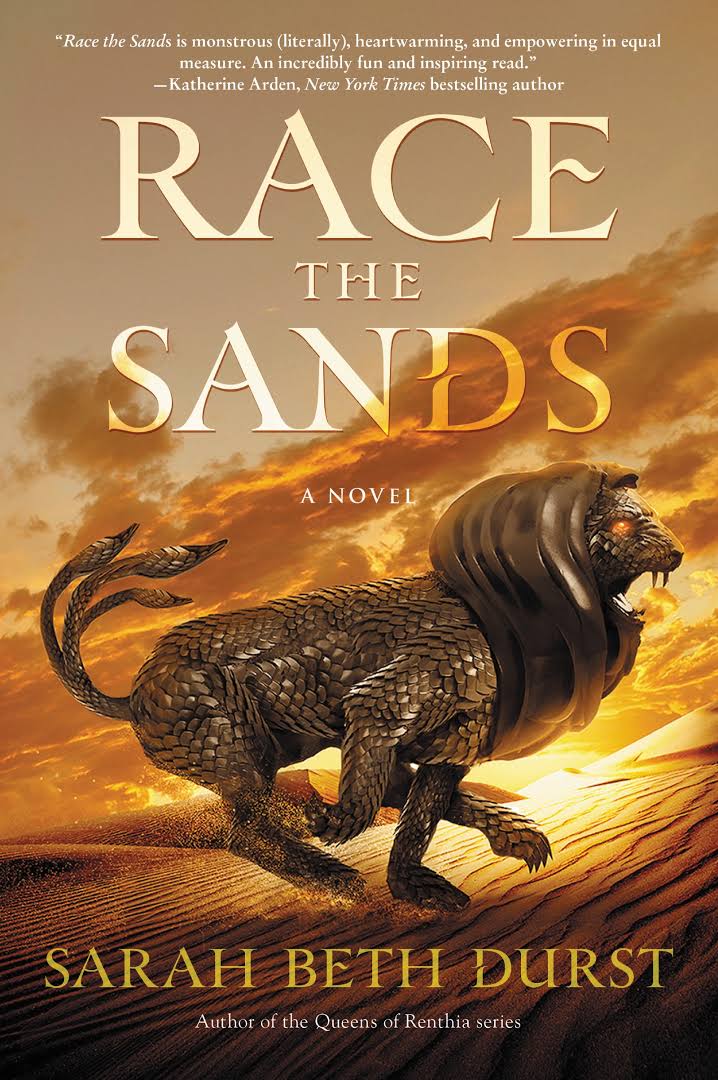Have you already loved the work of Dr. Kinitra D. Brooks? Searching for Sycorax? The Lemonade Reader and Sycorax’s Daughters collection? Are you looking for more? Let us help you! As part of Kinitra’s Guest of Honor week, we’re pleased to compile some of her interviews and work from around the web.
Kinitra’s Articles, Essays, and Lectures:
-
The Conjure Woman’s Garden: Colloquium with Kinitra Brooks (2019): “Literally, rootwork became the foundation of pharmaceutical science as black women ground up roots to put in salves and steeped leaves to make healing teas. Figuratively, rootwork is an active part of the spirit work that informs black women’s epistemic agency, knowledge practices infused with traditional African religious practices that are put into action, that are used to both heal and harm as part of a system of belief. I am openly and consistently pushing back against the epistemic exclusion of black women’s knowledge practices.”
-
Us Makes Us Look in the Mirror—What If We Don’t Like What We See? (2019): “The doppelgänger is such a rich horror metaphor because it points to how we define humans and the boundaries of humanity.”
-
The Multiple Pasts, Presents, and Futures of Nnedi Okorafor’s Literary Nigeria (2016): “In the end, Lagoon is a love story to Nigeria and its peoples, as well as a prediction that peace and prosperity will come only when the remembrance of the old ways are merged with an acceptance of the new.”
-
The Importance of Neglected Intersections: Race and Gender in Contemporary Zombie Texts and Theories (2014): “In this essay I want to explore how the horror text continues a tradition of the (non)representation of certain intersections of race and gender in Western society at large, and in zombie horror in particular. Specifically, I address the problem of how patriarchal and Eurocentric notions perpetuate multiracial representations of men juxtaposed against monoracial representations of women.”
-
Maternal Inheritances: Trinity Formations and Constructing Self Identities in Stigmata and Louisiana (2012): “The idea of motherhood as a tool of resistance occupies a noted and complex place within the African American cosmology.”
-
“Finding the Humanity in Horror: Black Women’s Sexual Identity in Fighting the Supernatural” (2011): “I contend that Tananarive Due and L.A. Banks rewrite and revamp history by focusing on black women’s bodies as sites of reality-changing power, and that their characters occupy multiple positions as complexly constructed lovers, and as both protector and protected.”
-
Myrtle’s Medicine: “My Mama Myrt became a wife, mother, and entrepreneur—a licensed beautician—but her ancestral role as a rootworker and community healer leads the unfolding narrative of my life.”
Kinitra’s Interviews:
-
The Conjure Is Political (2020): “I think ‘conjure’ is associated with a lot of women’s knowledge, and particularly Black women’s knowledge practices that are often easily dismissed, that a lot of times are hidden.”
-
The Lemonade Reader: Black Feminists Read Beyoncé (2019): “I believe the most important takeaway is that you have to do the internal work to grow into your happiness. And it takes work, especially in a world that actively hates Black women and girls. And that Southern Black women have long been onto something in articulating and laying the pathway for their Black girl descendants to make such a journey of self-healing and self-discovery. Beyoncé has simply excelled at coalescing all of these insights into a 55-minute avant-garde film/visual album.”
-
The Public Medievalist Podcast, Episode 1 (and transcript) (2019): “I’m a literary scholar. It’s not necessarily what I wanted it to be, it’s are you being true to the story. I think a lot of people were like, oh you’re mad that they made Daenerys the Mad Queen, you know, they have been foreshadowing this… Yes, you know, those of us who are fans of the show, those of us who have done some of the reading and everything else, we realize that that has been foreshadowed for a long time. But … you shit the bed in the execution.”
-
OutKasted Conversations: Kinitra Brooks (2019): “And I am obsessed with how black folks define their monsters while being considered monstrous and all those things that flow in between.”
-
An Interview with Dr. Kinitra Brooks, Who Teaches a Class on Beyoncé (2016): “I am most interested in how black women take folklore and syncretic religious practices (so spiritual practices that mix West African religion with Christianity) in their creative fiction and use it as a place of power and subversion against the horror genre and classic readings of black women’s literature.”
-
Interview with Dr. Kinitra D. Brooks, Horror Scholar (2016): “I believe horror offers many of the black women horror creators I study a sense of agency to push back against the horrific. Authors such as Chesya Burke, Kiini Ibura Salaam, and director/activist Bree Newsome use horror to examine the simultaneity of oppressions (race, gender, sexuality, and class) and offer interesting avenues for their black women protagonists to gain control and fight back against these interlocking systems of oppression.”
-
When Theory Meets the Incredible: Changing Perceptions of Black Women in Horror, Science Fiction, and Fantasy: “Brooks came to theorize that white women were capable of rescuing themselves while maintaining their femininity, blurring gender lines by assuming forceful attitudes and still remaining sympathetic figures. Black women who took on similar roles, on the other hand, were portrayed as unnaturally strong, losing their femininity and the sympathy of the audience in the process.”













































Connect with the Sirens community
Sign up for the Sirens newsletter